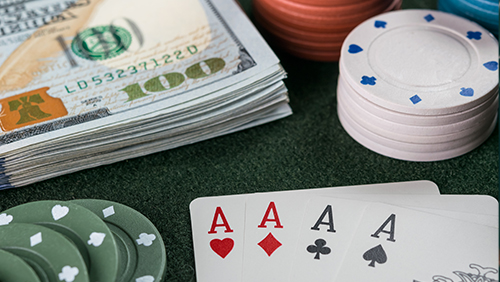Imperial Pacific International (IPI) was threatened with having its license for the Imperial Palace casino in Saipan yanked if it didn’t pay its outstanding debt to the Commonwealth Casino Commission (CCC) in two weeks. That was three months ago. IPI then came forward in August and confirmed that it would be impossible to come up with the $15.5 million regulators were waiting for, but added that it was willing to pay in installments if the CCC accepted. Now, the operator has offered some new terms to its Casino License Agreement (CLA) to be able to continue in Saipan, seemingly unwilling to accept the fact that it isn’t in a position to make demands. However, given the CCC’s inability to follow through on its threats to hold IPI accountable time and again, IPI might, once again, be able to avoid self-destruction.
(IPI) was threatened with having its license for the Imperial Palace casino in Saipan yanked if it didn’t pay its outstanding debt to the Commonwealth Casino Commission (CCC) in two weeks. That was three months ago. IPI then came forward in August and confirmed that it would be impossible to come up with the $15.5 million regulators were waiting for, but added that it was willing to pay in installments if the CCC accepted. Now, the operator has offered some new terms to its Casino License Agreement (CLA) to be able to continue in Saipan, seemingly unwilling to accept the fact that it isn’t in a position to make demands. However, given the CCC’s inability to follow through on its threats to hold IPI accountable time and again, IPI might, once again, be able to avoid self-destruction.
IPI wants its annual regulatory fee, set at $3 million, cut in half. It also wants the mandatory $20 million community fund contribution to be erased for the year and wants permission to go after gamblers who don’t pay their debt – because, of course, IPI is a role model for paying its debts on time. The debt-collection exercise would be backdated to 2015, and 15% of anything collected would be given to the government as tax revenue. These are only a few of the changes IPI asked for in a letter, “Points for the 9th amendment of the CLA,” it sent to the Commonwealth of Northern Mariana Islands (CNMI) this week.
In addition, IPI wants to continue its monopoly on Saipan’s casino market, which shouldn’t sound appealing to anyone. The company’s continuing examples of skirting laws and regulations have already led to a number of investigations and lawsuits, and its debt is mounting. It reported a loss of $103.2 million for the first half of this year, and alleges that gross trade receivables stemming from VIP gambler action are at $1.17 billion. The fact that it would allow gamblers to run up that much debt speaks volumes about IPI’s ethical and moral fortitude.
If regulators agree to the deal, IPI would pay its 2021 license fee in two payments, instead of one, with 2022 returning to the normal, single-payment arrangement. In addition, the casino operator is demanding the introduction of online gaming and a concession on license fees in the future if a catastrophe, such as COVID-19, forces it to close down for 30 days or more. From the tone of the letter sent to the CNMI government, a denial of the terms will mean that IPI will continue along its current path, which includes not paying its bills or employees on time and taking advantage of the CCC at every turn. The ball is now in the regulators’ court.
